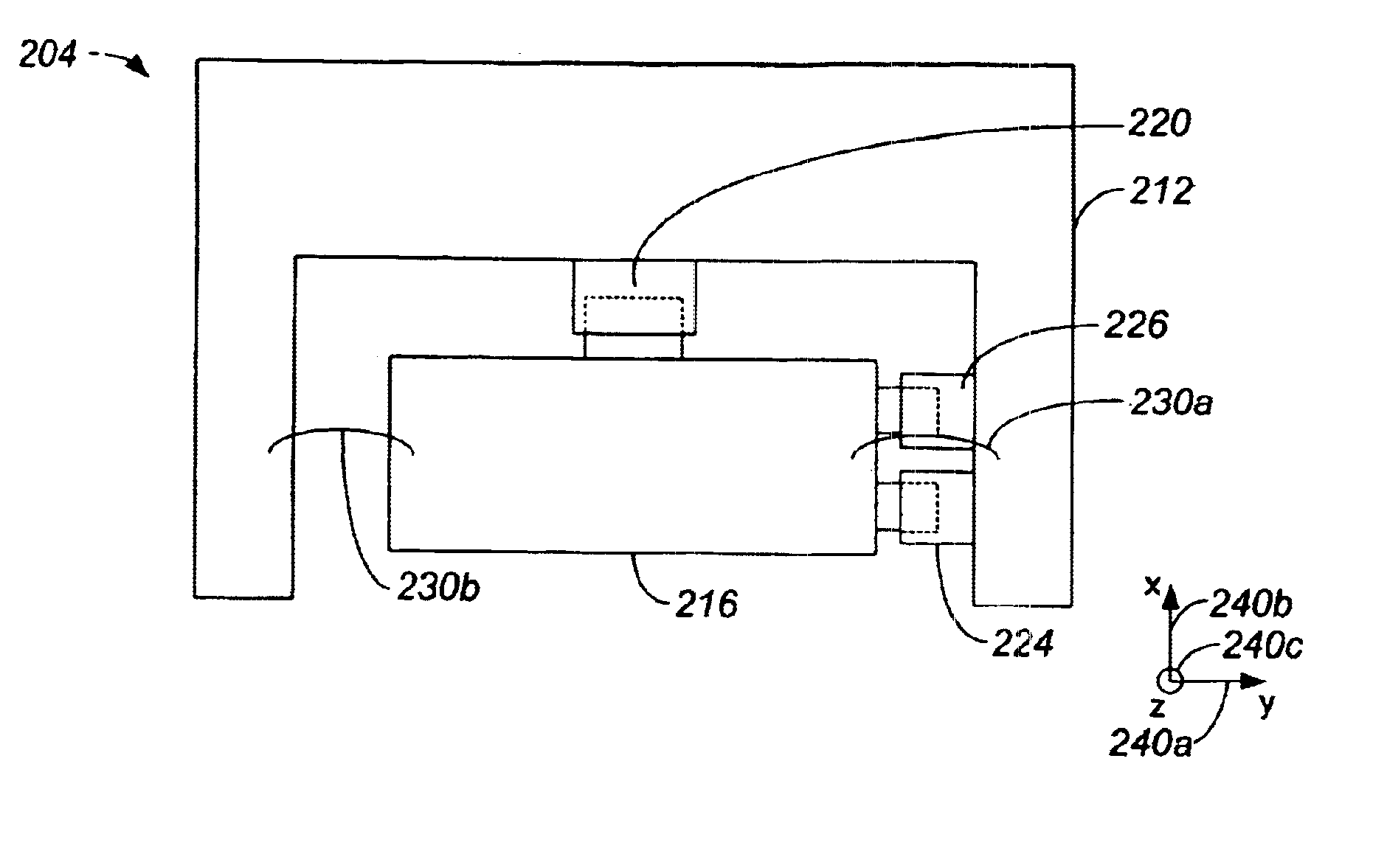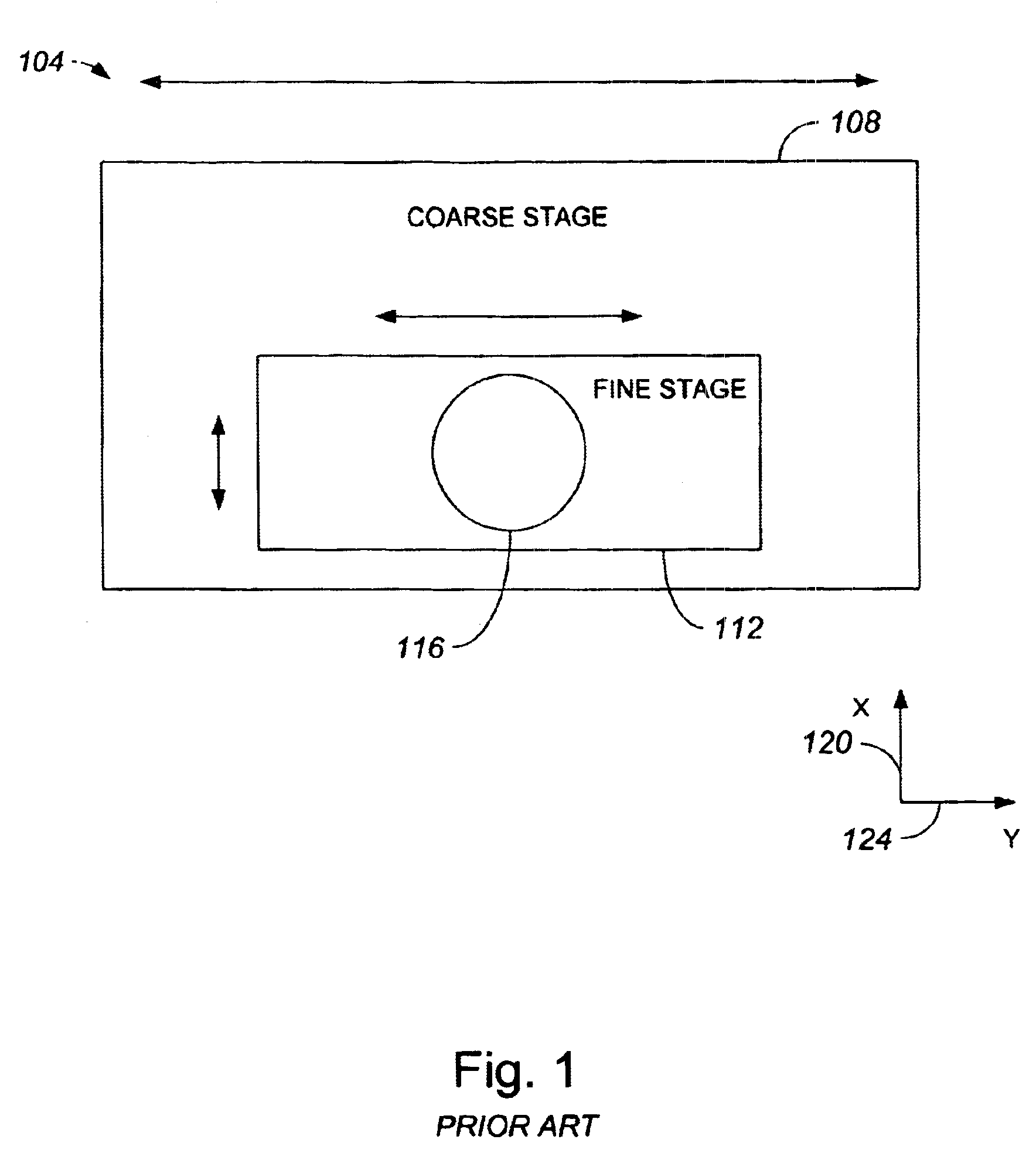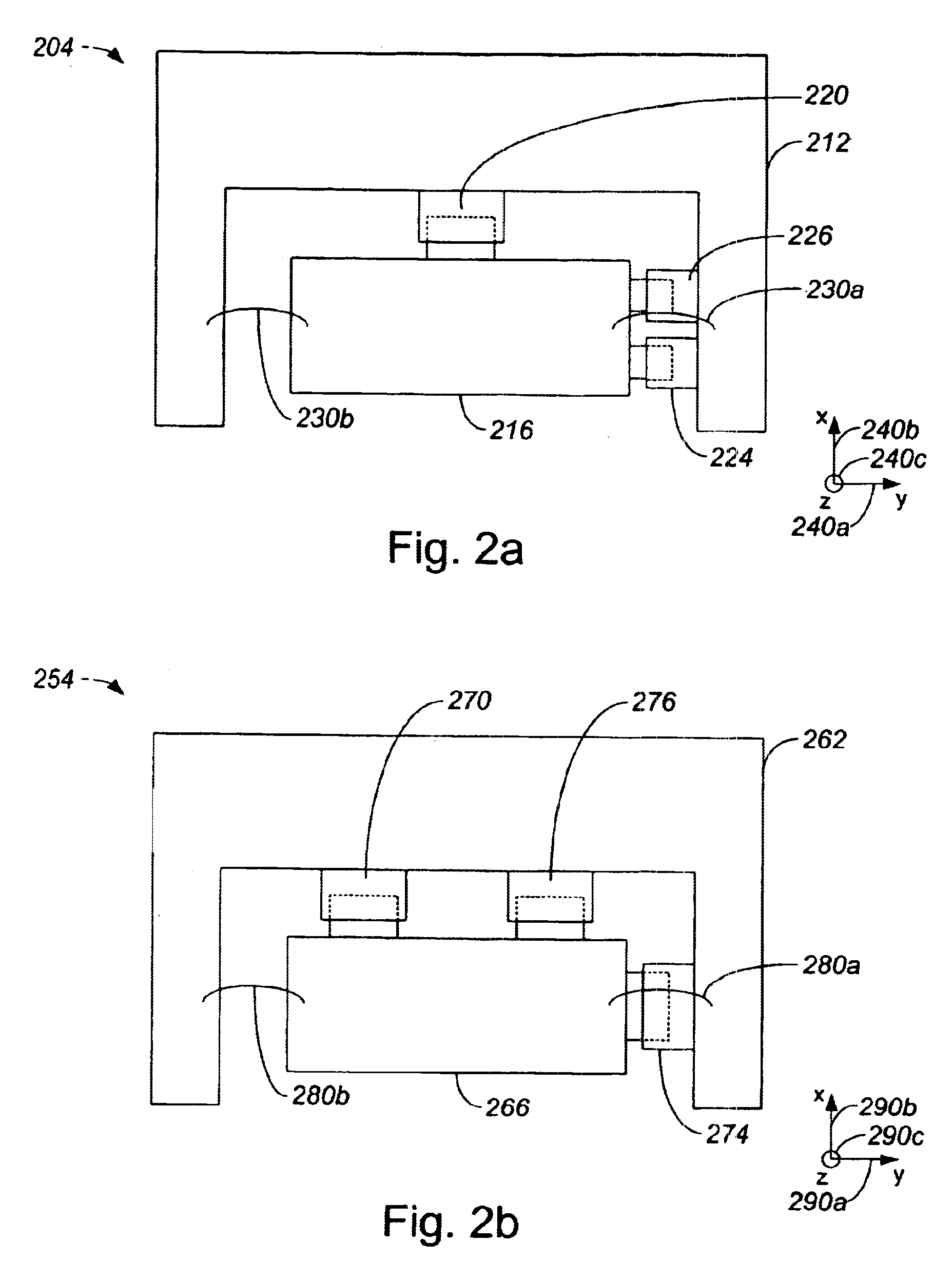Dual force mode fine stage apparatus
a technology of fine stage and force mode, which is applied in the direction of photomechanical equipment, instruments, printing, etc., can solve the problems of increasing the size of the actuator that acts between the coarse stage and the fine stage, sacrificing accuracy, and affecting the accuracy so as to achieve the effect of meeting throughput requirements, reducing the size and mass of the overall stage, and sacrificing accuracy
- Summary
- Abstract
- Description
- Claims
- Application Information
AI Technical Summary
Benefits of technology
Problems solved by technology
Method used
Image
Examples
Embodiment Construction
[0038]Increasing the throughput requirements of a reticle scanning stage often requires that acceleration capabilities of the reticle scanning stage be increased, and causes the accuracy associated with the reticle scanning stage to be compromised. This compromise is due at least in part to the fact that actuators which are capable of higher accelerations are generally more difficult to control and, hence, less accurate. In addition to being less accurate, large actuators are also difficult to position such that a line of force associated with the actuators may cross through the center of gravity on the reticle scanning stage. When the line of force is not through the center of the center of gravity on the reticle scanning stage, then a fairly significant balancing mass which increases the overall size of the reticle scanning stage may be needed to balance the reticle scanning stage. In order to increase the accuracy associated with a reticle scanning stage and to substantially mini...
PUM
| Property | Measurement | Unit |
|---|---|---|
| wavelength | aaaaa | aaaaa |
| speed | aaaaa | aaaaa |
| force | aaaaa | aaaaa |
Abstract
Description
Claims
Application Information
 Login to View More
Login to View More - R&D
- Intellectual Property
- Life Sciences
- Materials
- Tech Scout
- Unparalleled Data Quality
- Higher Quality Content
- 60% Fewer Hallucinations
Browse by: Latest US Patents, China's latest patents, Technical Efficacy Thesaurus, Application Domain, Technology Topic, Popular Technical Reports.
© 2025 PatSnap. All rights reserved.Legal|Privacy policy|Modern Slavery Act Transparency Statement|Sitemap|About US| Contact US: help@patsnap.com



